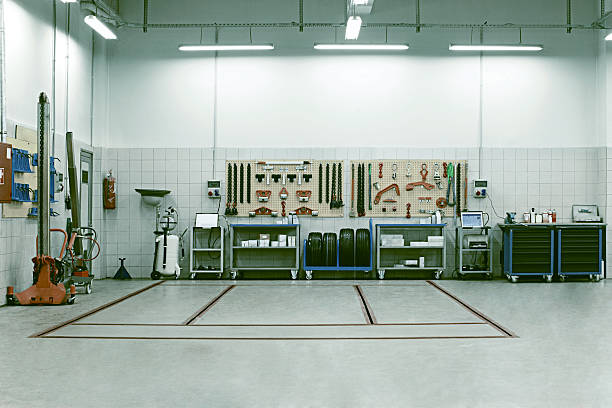Plumbing emergencies are a homeowner’s worst nightmare, and few situations induce panic like a blocked drain. Whether it’s a sudden overflow in the kitchen sink or a backed-up toilet, dealing with unexpected drainage issues can be stressful.
In these moments, quick thinking and a basic understanding of emergency plumbing can make all the difference. In this guide, we will delve into common emergency plumbing situations related to blocked drains and provide practical tips on how homeowners can handle these issues before the professionals arrive.
Table of Contents
Identifying the Problem:
The first step in addressing any plumbing emergency is identifying the problem. When it comes to blocked drains, the signs are often unmistakable. Slow drainage, unpleasant odors, gurgling sounds, or water backups are clear indicators that something is amiss. Understanding the cause of the blockage can help determine the best course of action.
Common causes of blocked drains include accumulated grease, hair, soap scum, foreign objects, or tree roots infiltrating the pipes. Each situation may require a specific approach, so it’s essential to assess the situation calmly.
Immediate Actions:
In the event of a blocked drain, taking immediate action can prevent further damage and increase the chances of resolving the issue swiftly. Here are some steps homeowners can take before calling in the professionals:
1. Turn Off Water Supply:
If the blockage is causing water to overflow, locate the water shut-off valve for the affected area and turn it off. This will help prevent flooding and minimize water damage.
2. Use a Plunger:
A plunger is a homeowner’s first line of defense against blocked drains. For sinks and toilets, use a cup plunger to create a vacuum and dislodge the blockage. Ensure there is enough water to cover the plunger and maintain a tight seal.
3. Boiling Water:
For grease or soap scum blockages, pouring boiling water down the drain may help break down the obstruction. Exercise caution and pour the water slowly to avoid splashing.
4. Chemical Drain Cleaners:
Chemical drain cleaners can be effective for minor blockages, but they should be used with caution. Follow the manufacturer’s instructions, wear protective gear, and avoid mixing different products.
5. DIY Snake/Auger:
A drain snake or auger can be used to physically remove blockages. Insert it into the drain and turn the handle to break up or pull out the obstruction. Exercise care to avoid causing damage to the pipes.
Remember that these are temporary solutions, and professional assistance should be sought for persistent or severe blockages.
When to Call a Professional:
While some blocked drains can be resolved with DIY methods, there are situations where professional help is essential. Homeowners should consider calling a plumber in the Hills if:
1. DIY Methods Fail:
If the blockage persists despite your efforts, it’s time to bring in the experts. Professional plumbers have specialized tools and equipment to tackle more stubborn blockages.
2. Foul Odors Persist:
Lingering foul odors emanating from drains could indicate a more significant issue in the sewer line. Professional inspection and repairs may be necessary.
3. Multiple Drains Affected:
If the blockage is affecting multiple drains in your home, it may be a sign of a more extensive plumbing issue. Professional diagnosis is crucial to prevent widespread damage.
4. No Water Flow:
Complete blockages that result in no water flow require immediate attention from a professional plumber. Attempting to force water through can lead to burst pipes and extensive damage.
5. Unexplained Water Pooling:
If you notice water pooling in unexpected areas around your home, it could be a sign of a hidden plumbing issue. Professional plumbers can use advanced tools such as cameras to inspect the pipes and locate the problem.
Preventive Measures:
While it’s impossible to prevent all plumbing emergencies, homeowners can take proactive measures to minimize the risk of blocked drains. Consider the following preventive steps:
1. Regular Maintenance:
Schedule routine plumbing inspections and maintenance to identify and address potential issues before they escalate.
2. Proper Disposal Practices:
Avoid disposing of grease, coffee grounds, and large food particles down the kitchen sink. Use a mesh screen to catch hair in shower and bathtub drains.
3. Tree Root Management:
If you have trees on your property, be aware of their root systems and take steps to prevent them from infiltrating your plumbing. Consult with a professional plumber for advice on root barriers.
4. Educate Household Members:
Ensure that everyone in your household is aware of proper disposal practices and knows not to flush items like paper towels, sanitary products, or wet wipes down the toilet.
5. Invest in Quality Fixtures:
Consider installing high-quality plumbing fixtures that are less prone to clogs and blockages. These may include drain screens and efficient garbage disposals.
In conclusion, dealing with unexpected drain issues requires a combination of quick thinking, DIY efforts, and professional assistance. By understanding the common causes of blocked drains, taking immediate action, and implementing preventive measures, homeowners can navigate emergency plumbing situations with confidence. However, when in doubt, it’s always best to enlist the expertise of a professional Castle Hill plumber to ensure a swift and effective resolution to the problem.














